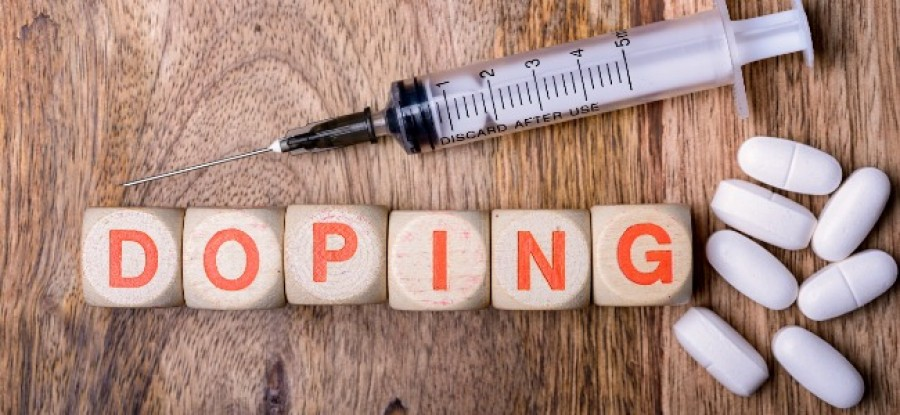Description

Copyright infringement not intended
About
- Indian gymnastics Dipa Karmakar who earned a fourth-place finish in the women’s vault final at the Rio Olympics 2016, is currently serving a two-year ban for an anti-doping violation.
- She is under suspension since the second half of 2021 for her failure to honour the guidelines as mandated by the World Anti-Doping Agency (WADA).
- ‘Anti Doping Administration Management System’ (ADAMS) managed by WADA, is designed to secure information relevant to athletes, support personnel and antidoping organisations for an effective out-of-competition testing programme.
- If an athlete in the registered testing pool (RTP) commits three whereabouts failures (which can be a combination of filing failure and/or missed tests) in 12 months, it will constitute an anti-doping rule violation (ADRV) and he/she will be sanctioned for a period of ineligibility of 12 to 24 months (first offence) or more for subsequent offences.
.jpg)
Details
- Doping is the use of banned drugs by athletic to enhance their performance.
- A 2019 report by the World Anti-Doping Agency has placed India ranked 3rd among the nations with the most anti-doping rule violations.
- Only Russia and Italy were worse off.
- Doping charges hurt India’s image and news of doping violations by Indian players in the Birmingham Commonwealth Games. Therefore it was felt to introduce a strong legal framework to curb doping in India.
- The Parliament has passed the National Anti-Doping Act 2022 to strengthen India’s fight against doping in sports.

Key Features of the National Anti-Doping Act
- The main objective of the act is to strengthen the search, seizure and investigative powers of the National Anti-Doping Agency (NADA).
- It introduced reforms in the structure and functioning of NADA.
- NADA was established as a statutory body headed by a director general appointed by the Union Government.
- It suggested establishing a National Board for Anti-Doping in Sports to make recommendations to the government on anti-doping regulations and compliance with international commitments on anti-doping.
- Increase the power of NADA, according to the act, NADA will be authorized to plan, implement and monitor anti-doping activities and investigate violations.
- As per the provisions of the act, “any violation of anti-doping rule may result in disqualification of results including forfeiture of medals, points and prizes, ineligibility to participate in a competition or event for a period, and financial sanctions.”
- Earlier, NADA cannot conduct raids if it suspects or has evidence of any doping activity.
- With this Act, NADA gets the power to search and seize.
- An independent Board was established to ensure the time-bound resolution of cases.
Other Steps taken to curb doping
- The government is running anti-doping education awareness workshops and campaigns.
- The government is collaborating with IIT, National Institute for Pharmaceutical Education and Research, CSIR, National Forensic Science University and all other scientific agencies in the country to curb doping in sports.
National Anti-Doping Agency of India (NADA)
- The National Anti-Doping Agency of India is India's national organization responsible for promoting, coordinating, and monitoring the doping control program in sports in all its forms.
- The agency deals with adopting and implementing anti-doping rules and policies which conform with the World Anti-Doping Agency, cooperating with other anti-doping organisations and promoting anti-doping research and education.
- The agency is formed by the Union Government under the Societies Registration Act and includes scientists and representatives from the Indian Olympic Association.
World Anti-Doping Agency (WADA)
- The World Anti-Doping Agency is a foundation initiated by the International Olympic Committee based in Canada to promote, coordinate, and monitor the fight against drugs in sports.
- The agency's key activities include scientific research, education, development of anti-doping capacities, and monitoring of the World Anti-Doping Code, whose provisions are enforced by the UNESCO International Convention against Doping in Sport. The aims of the Council of Europe Anti-Doping Convention and the United States Anti-Doping Agency are also closely aligned with those of WADA.
https://timesofindia.indiatimes.com/sports/more-sports/others/gymnast-dipa-karmakar-serving-two-year-ban-for-anti-doping-violation/articleshow/96489739.cms#:~:text=TOI%20can%20now%20confirm%20that,violation%20under%20the%20whereabouts%20rule.













